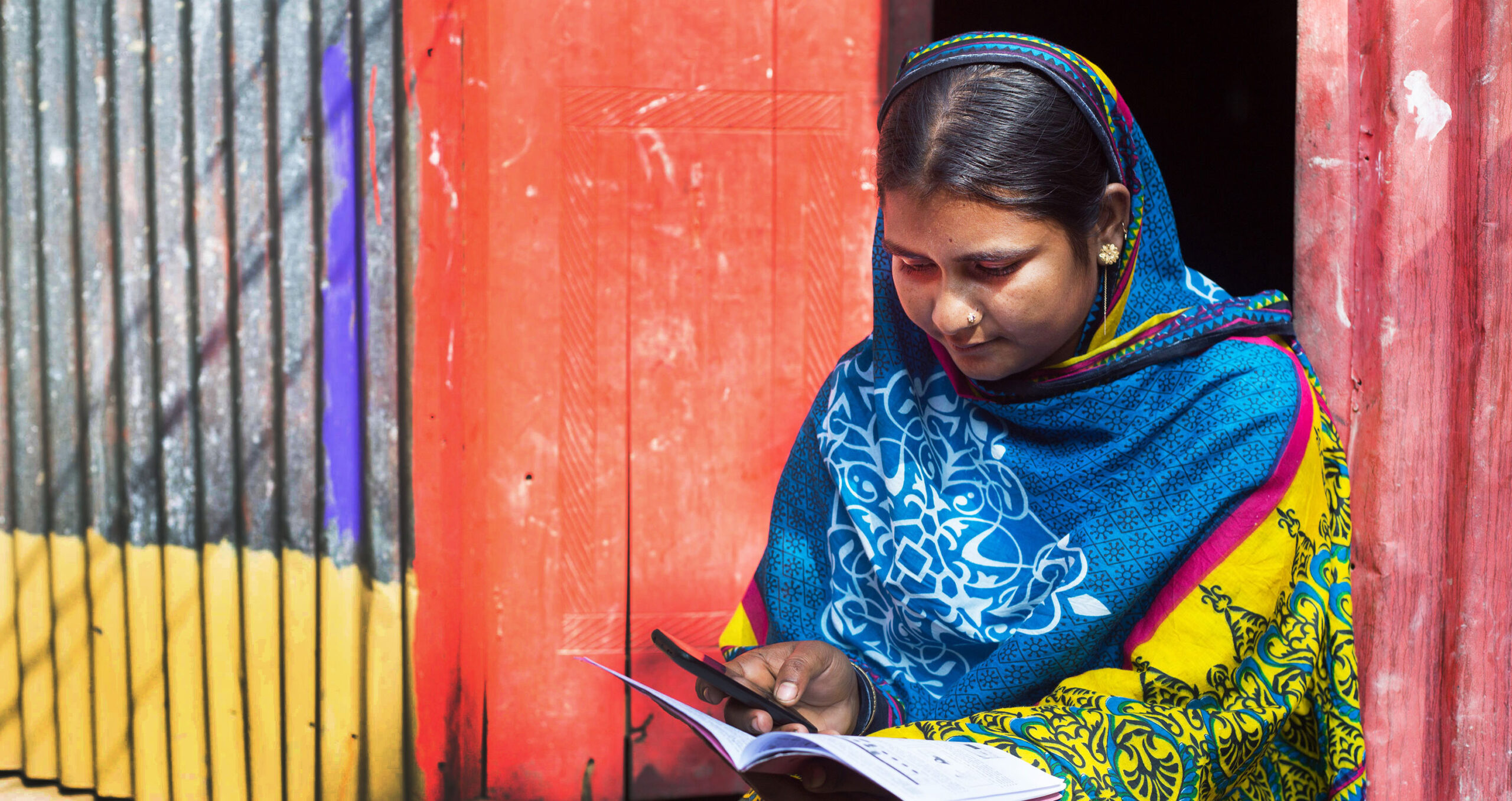Activating a network of 4 million
Community health workers are key to fighting COVID-19 – Here’s how they can accelerate financial inclusion.

By Tanjila Mazumder Drishti, Khondokar Anwar Shadat, and Raiya Kishwar Ashraf
This piece was originally published in NextBillion. It has been reposted below.
The COVID-19 pandemic has elevated and transformed the role of community health workers, demonstrating their vital role in public health. But BRAC’s new initiative to digitize payments to its 50,000 community health workers in Bangladesh also underscores their potential as proponents of financial access — with enormous implications for global financial inclusion.
Community health workers have an extraordinary global presence and impact. The World Health Organization estimates there are more than 4 million community health workers worldwide. Mostly women, they are trusted sources of health information, advice and monitoring. Because they typically live in the communities they serve, they stay well-informed about the needs of those communities. In Bangladesh, one health worker may be the go-to person for health-related information, pregnancy care, over-the-counter medicines and health referrals for around 450 families.
Historically, community health workers have been especially important in nations where medical facilities are in short supply, especially in the Global South. Now, however, even the world’s most developed nations are creating such networks, recognizing that COVID-19 cannot be defeated just within the walls of hospitals and must be combatted through community outreach.
New challenges amid COVID-19
As the pandemic has transformed the role of community health workers from focusing largely on maternal care to informing the public about preventing and addressing COVID-19, it has also underscored a new role: advancing financial inclusion. Health and financial inclusion are integrally linked, as both are closely tied to poverty.
The coronavirus pandemic has accelerated the emergence of this new role in Bangladesh by forcing the digitization of payments to community health workers, who work largely in remote villages. While community health workers are often volunteers, they typically receive financial compensation based on services provided, and that compensation can be vital to a family’s income. As the pandemic spread, these health workers became crucial to providing information about the virus. But lockdowns disrupted the traditional mechanisms used to pay them, including both the banking system, which facilitated cash payments, and the public transportation system the workers used to gain access to the banks.
Innovating for financial inclusion among community health workers
Though community health workers had typically relied on cash payments for their compensation, these obstacles meant that innovation was needed. To address this emerging need, BRAC’s health program collaborated with bKash, the mobile financial service of BRAC Bank.
Initially, it was a challenge that most community health workers did not have their own mobile phones. While their husbands or children typically had a phone, these health workers often did not. As a result, in most cases, community health workers did not have mobile money accounts – and they were often suspicious of them. As one said, “I thought if someone steals my phone, all my money will be stolen, too.”
Fortunately, most community health workers were familiar with bKash as a banking presence and were willing to talk with the local agent to set up a personal mobile account on a family member’s mobile phone. With the help of BRAC field staff and bKash agents, more than 32,000 BRAC community health workers who were not previously using digital financial systems set up mobile accounts and learned how to use them. That gave BRAC’s entire network of 50,000 health workers access to mobile payments.
Once the community health workers understood the benefits, they realized they no longer had to take the time and make the effort to visit a BRAC branch office twice a month or more to pick up their payments, often enduring long travel. Now, they could use their mobile accounts to obtain their cash at a nearby grocery store – or they could leave the funds safely in the account until they were ready to cash out.
A scalable approach for financial inclusion
This was a major milestone for tens of thousands of rural women, and one with huge implications for financial inclusion. In their outreach about COVID-19, conducted based on BRAC’s world-standard safety course, our 50,000 community health workers in Bangladesh — equipped with personal protective equipment and armed with information and sanitation products — directly reached more than 35.5 million households within five months. They are now also capable of informing tens of millions of women about the benefits of mobile money, and of transforming the way healthcare payments are made at a community level.
This approach provides a useful model that could be replicated and scaled widely across the global network of community health workers. It could allow that vast infrastructure to be strengthened, not only by providing a means to ensure health workers are paid on time, but also by enabling them to reach families with information about mobile money.
The approach could have huge reverberations around the globe. Given that BRAC’s 50,000 community health workers reached over 35 million households with COVID-19 information in a few months, the worldwide network of over 4 million community health workers across multiple organizations could theoretically reach billions of households with advice about COVID prevention, COVID-compliant healthcare and the benefits of using mobile money – especially during the pandemic. Those billions of additional households could be directly engaged in financial inclusion by women from their own communities who they already know and trust. That provides a huge opportunity for both transforming the modality of healthcare payments at the grassroots level, and extending financial inclusion to a vast population in great need of increased financial security.
Tanjila Mazumder Drishti is Senior Manager at BRAC’s Health, Nutrition and Population Program. Khondokar Anwar Shadat is Project Coordinator for the Innovation Fund for Mobile Money at BRAC’s Social Innovation Lab. Raiya Kishwar Ashraf is Manager of Innovation Ecosystem and Partnerships at BRAC’s Social Innovation Lab and leads their digital financial services portfolio.